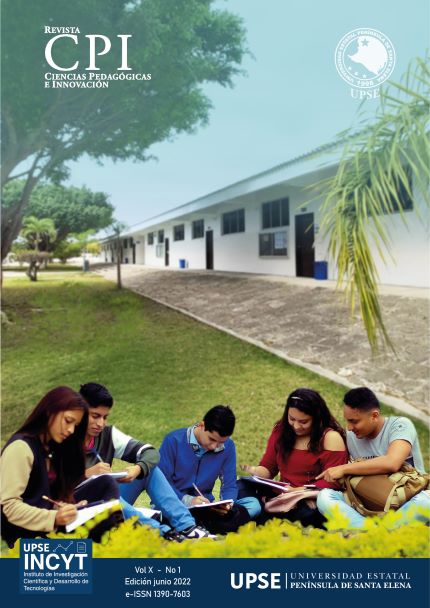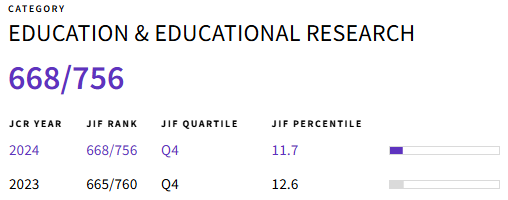Perception of Ecuadorian police officers on professional training
DOI:
https://doi.org/10.26423/rcpi.v10i1.425Keywords:
police education, police schools, boarding school, police universityAbstract
This study explores and describes aspects that characterize police training from the perspective of police officers. It addresses some of the problems that arise in police training schools, such as the internship system's barriers or the limited infrastructure maintenance budget. The research presents a quantitative approach with a non-experimental design in which the survey is composed of 14 questions grouped into three dimensions. Each item evaluated used a Likert-type scale between 1 and 5. The questionnaire applied to 5,077 Ecuadorian police officers. Among the most significant findings, the need to have police officers with university studies demonstrated; police directors and teachers with fourth-grade academic degrees; adequate infrastructure, resources, and equipment for police practices; that police training centers must change their approach concerning the evaluation of academic performance and orient it towards comprehensive training.
Downloads
References
Arriagada, I. (2002). Seguridad ciudadana y violencia en América Latina. En F. Carrión. (Ed.). Seguridad ciudadana, ¿espejismo o realidad? (pp. 109-138). FLACSO y la Organización Panamericana de la Salud/Organización Mundial de la Salud. http://www.flacso.org.ec/docs/sfseguridadciudadana.pdf
Bodemer, K. (2005). Democracia y seguridad en un mundo globalizado y de riesgos. Algunas anotaciones. Quórum. Revista de pensamiento iberoamericano, (12), 126-139. http://www.redalyc.org/articulo.oa?id=52001209
Bover, T. (2014). Transformaciones en la formación de la Policía Federal Argentina: del modelo militar a las competencias policiales [conferencia]. IX Jornadas de investigación, docencia, extensión y ejercicio profesional: "Transformaciones sociales, políticas públicas y conflictos emergentes en la sociedad argentina contemporánea, La Plata, Argentina. http://sedici.unlp.edu.ar/handle/10915/43073
Calandrón, S. (2008). Formar y Reformar. Procesos de formación policial en la reforma de la Policía de la Provincia de Buenos Aires [conferencia]. V Jornadas de Sociología de la UNLP, La Plata, Argentina. http://sedici.unlp.edu.ar/handle/10915/99058
Carrión, F. (2002). Seguridad ciudadana y violencia en América Latina. En F. Carrión. (Ed.). Seguridad ciudadana, ¿espejismo o realidad? (pp. 13-58). FLACSO y la Organización Panamericana de la Salud/Organización Mundial de la Salud. http://www.flacso.org.ec/docs/sfseguridadciudadana.pdf
Casas, K., González, P., y Mesías, L. (2018). La transformación policial para el 2030 en América Latina (Informe del Programa de Estado de Derecho Peter D. Bell y el Banco Interamericano de Desarrollo). Banco Interamericano de Desarrollo y el Programa de Estado de Derecho Peter D. Bell del Di logo Interamericano. https://www.thedialogue.org/wp-content/uploads/2018/11/ KCasas_TransformacionPolicial_FINAL.pdf
Chapman, C. (2012). Use of force in minority communities is related to police education, age, experience, and ethnicity. Police Practice and Research, 13(5), 421-436. DOI: https://doi.org/10.1080/15614263.2011.596711
Código Orgánico de las Entidades de Seguridad Ciudadana y Orden Público [COESCOP]. Suplemento del Registro Oficial Nro. 19, 21 de junio de 2017 (Ecuador).
Constitución de la República del Ecuador [CRE] Artículo 355, 20 de octubre de 2008. https://www.gob.ec/sites/default/files/regulations/2020-06/CONSTITUCION%202008.pdf
Dworzecki, J., y Hryszkiewicz, D. (2017). A Proposal of Change in the Model of Police Education in Poland on the Basis of Experiences of Uniformed Agencies of Selected EU Member States Outline of Issues. Part I. Scientific Journal of Bielsko-Biala School of Finance and Law, 21(3), 151-164. DOI: https://doi.org/10.19192/wsfip.sj3.2017.9
Hernández-Sampieri, R., Fernández Collado, C., y Baptista Lucio, P. (2014). Metodología de la investigación (4ta ed.). México D.F.: McGraw-Hill.
Huey, L., Kalyal, H., y Peladeau, H. (2017). Preparing Police Recruits of the Future: An Educational Needs Assessment. Sociology Publications, (37), 1-42. https://ir.lib.uwo.ca/sociologypub/37
López Portillo, E. (2003). Educación y Entrenamiento Policial para la Democracia. UC San Diego: Center for U.S.-Mexican Studies. https://escholarship.org/uc/item/1r11k883
Ministerio Coordinador de Seguridad Interna y Externa. (2008). Hacia una nueva política de seguridad interna y externa Agenda Nacional de Seguridad Interna y Externa. Quito, Ecuador.
Ossorio, M. (2006). Diccionario de Ciencias Jurídicas Políticas y Sociales. (1ra ed.) Guatemala: Datascan, S.A.
Paoline, E., y Terrill, W. (2007). Police Education, Experience and the Use of Force. Criminal Justice and Behavior, 34, 179-196. https://www.researchgate.net/publication/240281534_Police_Education_Experience_and_the_Use_of_Force
Paoline, E., Terrill, W., y Rossler, M. (2015). Higher Education, College Degree Major, and Police Occupational Attitudes. Journal of Criminal Justice Education, 26(1), 49-73. https://www.researchgate.net/publication/270649032_Higher_Education_College_Degree_Major_and_Police_Occupational_Attitudes
Policía Nacional del Ecuador [PNE]. (2013). Policía Nacional del Ecuador 75 años 1938-2013, 10-80.
Rydberg, J., y Terrill, W. (2010). The Effect of Higher Education on Police Behavior. Police Quarterly, 92-120. https://www.researchgate.net/publication/247748841_The_Effect_of_Higher_Education_on_Police_Behavior
Tordesillas, M. (2011). Fundamentos para una universidad de excelencia multiversal y sostenible. Magriberia, (4), 133-166. https://dialnet.unirioja.es/servlet/articulo?codigo=3897613
Turizo, J., y Jímenez, W. (2011). Militarización de la Policía y Policización de las Fuerzas Militares. Revisión del fenómeno a nivel internacional y nacional. Revista Logos, Ciencia y Tecnología, 3(1), 112-126. https://www.redalyc.org/pdf/5177/517751801010.pdf
Downloads
Published
Issue
Section
License
El titular de los derechos de autor de la obra, otorga derechos de uso a los lectores mediante la licencia Creative Commons Atribución-NoComercial-CompartirIgual 4.0 Internacional. Esto permite el acceso gratuito inmediato a la obra y permite a cualquier usuario leer, descargar, copiar, distribuir, imprimir, buscar o vincular a los textos completos de los artículos, rastrearlos para su indexación, pasarlos como datos al software o usarlos para cualquier otro propósito legal.
Cuando la obra es aprobada y aceptada para su publicación, los autores conservan los derechos de autor sin restricciones, cediendo únicamente los derechos de reproducción, distribución para su explotación en formato de papel, así como en cualquier otro soporte magnético, óptico y digital.

















